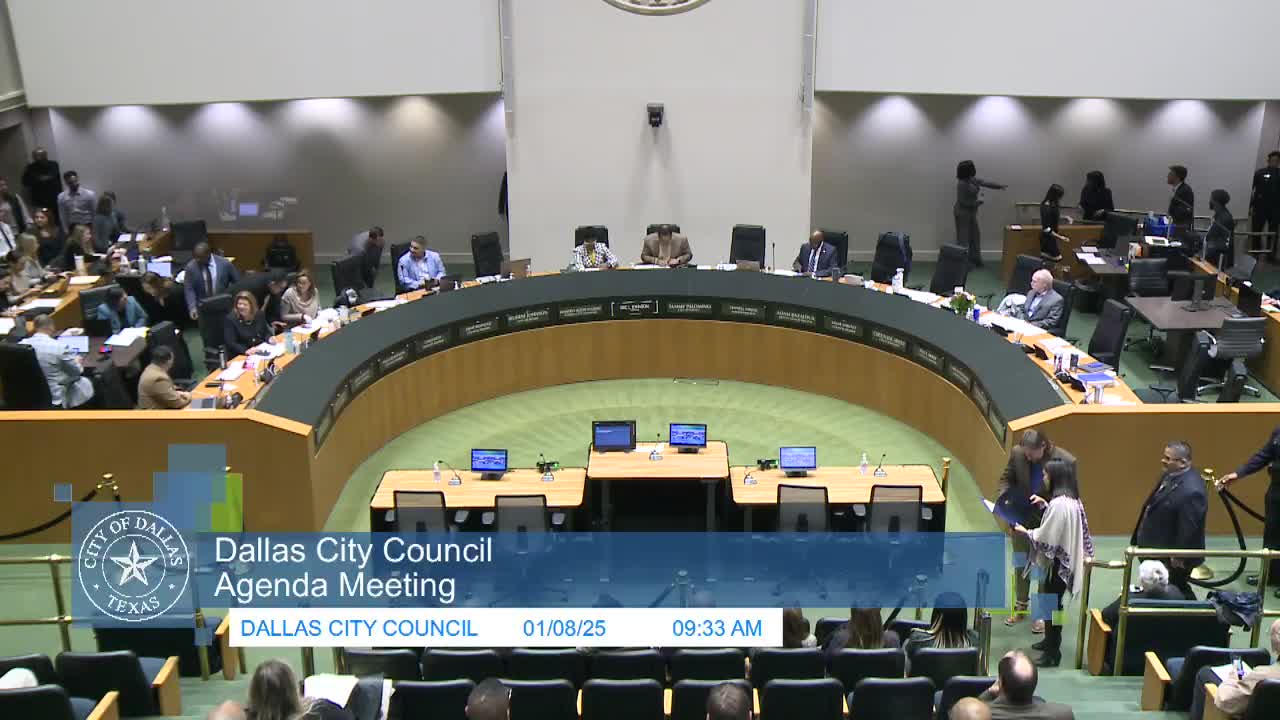Carlos Evans departs as Dallas environmental director after three years leading OEQS
Get AI-powered insights, summaries, and transcripts
Subscribe
Summary
Carlos Evans, director of the Office of Environmental Quality and Sustainability, left city employment Jan. 8 after three years. City leaders praised his role expanding environmental justice work, air monitoring, Brownfields work and CCAP implementation.
Carlos Evans formally left his post as director of the Office of Environmental Quality and Sustainability (OEQS) on Jan. 8, 2025, drawing public remarks and a council recognition at the Dallas City Council meeting. Interim City Manager Kimberly Beiser Tolbert and multiple council members praised Evans for work on environmental justice, air monitoring, Shingle Mountain cleanup efforts, and integrating sustainability into bond programs.
Evans joined the city in 2022 from the U.S. Environmental Protection Agency. During his three years at OEQS, council and staff credited him with hiring the city’s first environmental justice coordinator, launching neighborhood-level air monitoring, advancing the Brownfields Revitalization Program, improving industrial and stormwater inspections, and integrating climate and sustainability goals into capital planning. Tolbert said Evans helped the city “face those challenges head on” and noted OEQS’ inspections and water conservation savings figures presented to the council.
Assistant City Manager Liz Atilo Pereira described Evans as a “visionary” who chose to move from a federal career to municipal service and who built a capable team within OEQS. Council members across the political spectrum lauded Evans’ focus on equity and community engagement: several cited expanded air monitoring in West Dallas and work on the former Blue Star/Shingle Mountain site, as well as grant and federal partnerships. Council members also emphasized the department’s small staff and the institutional changes—procedures and staffing—Evans put in place to continue the work after his departure.
Evans addressed the council briefly, thanked staff and community partners, and said he is leaving the city to pursue opportunities outside municipal government but will remain in Dallas. He specifically called out OEQS staff and the Environmental Commission for their contributions and noted the department’s recent regulatory work, including stormwater inspections and air program audits.
The council staged a formal recognition and presentation. Multiple council members urged continuity and pledged to sustain environmental justice, monitoring, and CCAP (the city’s climate and clean energy plan) implementation. The city will proceed with OEQS transition planning and follow-up staffing and program decisions through the city manager’s office; no personnel action or replacement timeline was announced during the meeting.
Ending: The council’s public recognition and staff comments framed Evans’ departure as a leadership transition rather than a policy shift. The city manager and assistant city manager said OEQS will continue ongoing programs and brief the council in coming weeks about any immediate succession plans and how the office’s work will be carried forward.
